#not like a story About Men or even about How Capitalism And Toxic Masculinity Is Bad
Explore tagged Tumblr posts
Text
Recognition and desire
Ages ago I wrote something similar to the below on a reblog but I thought it would be worth sharing again, particularly with the fantastic discussions about sexuality and desire happening in The Bear fandom atm.
I often come back to @outmakingmoonshine's reblog meta about the dialogue in 1x01 which lays out the blueprint for The Bear being a romance from the jump (and honestly, is a bit of a bible for me at this point), in particular this observation of theirs:
I just think if this show was never meant to be about romance, why so much subtextual dialogue about romance from the very first episode? Why tell us it wouldn't be "mushy and gluey/gooey" like other TV romances...which is exactly what were getting with SydCarmy. This isn't the "over sauced, under seasoned mess" we usually get in TV ships. This love story has substance, less bread, less sauce and more beef just like Carmy wanted! Another piece of dialogue in 1x01 that I left out that I think also ties into Carmy not caring about the cutesy aspects of love/romance so much but caring more about the connection he has with someone aka the substance/meat of what love is about. Connection with someone else. That's why he looked so desolate, disconnected and dissatisfied after the sex scene with Claire but his body language after the food "dirty talk" in the table scene was a satisfied man who felt a deep connection with another person.
I wonder, along with the blatant misogynoir, how much people not recognising that Carmy and Sydney can be more than platonic partners in business is also tied up with people not being able to actually recognise how attractive mutual respect, care and shared passion actually are? Like how unbelievably erotic it is to meet someone with whom you share those things with, and who respects and cares for you so much that they’d challenge you to excel in that shared passion, and not feel threatened by your excellence? This is particularly the case for Black and racialised women and femme folks who are always being made to make ourselves smaller than we are so that others - especially white men - don’t feel like they’re losing any ground.
We don't often get that kind of desire depicted on screen. More often than not, we get fed empty calories based on sheer physical attraction and chemistry...which might be delicious, but don't keep you full and might actually be bad for your (mental) health lol?
Have we have been force-fed particular romantic relationships in TV and film for so long where power between people is not equal, where characters are written like walking stereotypes, where so much is written and produced for consumption by certain sections of the community (read: white, cishet, neurotypical, wedded to toxic masculinity) that folks are so deeply conditioned that they cannot even imagine how beautiful seeing this kind of romantic relationship on screen could be?
If Storer and Calo's intention is to give us a full-bodied romance that will fill us up - which I firmly believe is the case - then S4 (and possibly S5 if we get it?) is going to be fantastic for us Sydcarmies.
However, subtext will only get us so far. We need Sydcarmy made explicit in the show. Particularly now, when the current American administration is attempting to render particular people, including Black women, women of colour and femme folks not just smaller, but completely invisible. If this show is really the critique of late-stage capitalism and the commentary on our need for community that I think it is, then we need its story-telling and art to continue that messaging and raise its stakes. They told us they know who their demographic is and we know its not any of the incel, QAnon, 4chan, Snyder Cut motherfuckers that Richie told to get out of the line in 1x01 (if ever there was invitation for those dickheads to gtfo of the fandom, it was this right in the first episode of the show lmao). So I'm waiting, seated here for when Storer and Calo, speak directly to the rest of us and deliver Sydcarmy in all its glorious, messy, and erotic deliciousness!

#sydcarmy#the bear#the bear fx#the bear hulu#the bear meta#the bear is a sex comedy#the bear is a romantic comedy#the bear is a love story#carmy x sydney#sydney x carmen#carmen berzatto#sydney adamu
32 notes
·
View notes
Note
I'm curious on what do you think about genderbend au of mouthwashing since I see a lot of people hates it for not "getting the point" and "erases the plot"
While some genderbends of it from what i see is never intended to be a serious au all of them are just like silly fanarts
Short answer? No, I don't think it inherently takes away from the plot and misses the point and people are allowed to have fun with their psychological horror video game however they like.
Long answer? I already have some pretty stickler opinions about genderbends as is simply put: Alot of them are extraordinarily lazy by just slimming down men into big busty women with no body fat or muscles, and so on the opposite way with turning women into big buff ugly alpha chad dudes. But whatever thats not the point— I think Genderbends, for specifically Mouthwashing, are fine.
While the pregnancy does play a very huge part in the game, it can be done expertly the other way around or not at all, if thats what you're aiming for, as the actual assault and it happening is just as important. Its just one of those kind of things you need to surgically manoeuvre around to make it not seem like you're dismissive towards rape against men or that women can be rapists without it coming off as extremely misogynistic, which is where alot of people that do write this stuff tend to fall towards, even by accident.
I absolutely do think, beyond Anya, that if the situation was genderswapped, I do think it would go pretty much the same. Some very small things would be changed, and I'm not entirely sure exactly what since the themes of Toxic Masculinity, Abuse of power, etc. All rely entirely on Pony Express' treatment of their workers, it boils back to capitalism and how it directly impacts people like Jimmy and directly enables their behaviour. The actual mince meat of the story wouldn't change all that much because PE is an absolute in both circumstances, and the things that would change are miniscule compared to the overarching theme of Capitalism Is Bad and that it Enables Bad People. As much as I love a good analysis, its a beautiful thing to be able to enjoy stuff on the surface level like fun art and silly AU's. or shipping, maybe even good endings! Its what keeps us sane.
#Anon#wow this kinda got. longer than i thought#thank you for the ask! a really good question#mouthwashing
18 notes
·
View notes
Text
Playing Avowed, having lots of fun with it along multiple barometers, but right now I just want to highlight that it's nice to have the theme of 'Empire: Good or Bad, Question Mark' writ large. More specifics and spoilers below the cut. (I'm only partway into Emerald Stair, just finished the Steel Resolve sidequest)
I think a lot about the '61 film Judgment at Nuremberg. I saw it as a teen/young adult around 2010, and yeah it made a pretty decisive impression. Especially the one contrite judge's testimony; he, and his countrymen, were scared of poverty and instability, and willfully led by a tyrant into war, scapegoating, genocide, cultural 'purification'. Nothing about the former, being scared, justifies any of the latter. And like, yeah, no fucking duh, but obviously it's worth pointing out that the same rhetoric works just as well in America as it did in Germany. And the movie doesn't shy away from pointing out that America's hands and history are just as bloody.
Watching my country embrace full-throated fascism, especially those who should fucking know better, has been shit. And it's been additionally frustrating because before I realized how important it was to care about politics, the only cogent political thought I had was, 'if party politics are only based on beating the other party, a dictator is inevitable'.
If a young white man, raised in a conservative household, with a catholic private-school education, can figure that basic shit out, what the actual fuck is wrong with the rest of my country's men? I was set up perfectly to be a completely compliant cog of the dominant social order and I'm not, because it is self-evident to me that bootstrap capitalism is horseshit??? That the government is supposed to help people more than it should fight wars for money??? That cultural christian hegemony is mega-horseshit and actively kills people actual christians are supposed to actually care about????? I'm not a """successful man""" by patriarchal standards yet I am not resentful about that? It doesn't make me want to double down on the false promises of performative toxic masculinity??? How am I able to see this, when so many of my country's white men cannot?
Avowed's premise is excellent for playing in that story space of 'what does it mean to you to be the representative of imperial will?'. The colonial frontier, island of misfits, the party being comprised of the outcasts' outcasts, and what better antagonistic lightning rods than the steel garrote led by savathun Lödwyn. (Yes devs please keep hiring Debra Wilson Im so glad I paid full price for this.)
The PC's assassination is such a funny setup for act 1 intrigue. Like, it feels like they genuinely expect you to be REALLY mad about it, but game brain aside yeah even if that was me I wouldnt be mad about it long enough to want to kill the rebels over it. I'm the imperial freaking envoy. Of Course the locals want me dead. Doubly so once it's clear Ygwulf is having visions. People are doing ridiculous shit all the time in this world on the justification of visions/prophecies/other idealogical craziness. Reading the notes makes it very clear lodwyn is the real problem that needs to be addressed. She is either directly responsible for the dreamscourge or is a part in whatever constellation has brought it forth. (95% confidence)
I paid the ondra priestess for info but then convinced herself to turn herself in (I was kinda pissed at her describing Ygwulf as such a big deal). I killed through the rebels until I got to Ygwulf and he seemed to fold pretty easily, and again having read the notes, it's obvious he is highly motivated but neither pragmatic nor forthinking, he just Really Cares, y'know? Someone has to Do Something, y'know? When I went back to finally meet lodwyn I hoped to provoke more out of her but alas. Afterward, the ondra priestess was the only one hanged, and I didnt snitch on the rebels, but multiple npcs referred to ygwulf being hanged? But I also still got the rebel endorsement signed by ygwulf?? I think my choices led to slightly bugged outcomes.
In summary: my choices were very muddled politically, because I played it by vibes not a firm conviction, and my focus is on the Dreamscourge and stopping lodwyn. So it's not surprising my outcomes in act 1 were muddled too.
Steel Resolve was a much more satisfying arc. Listening to Dorsa's explanation, depriving her of the 'security' she so foolishly killed for(I told her to run because the Rangers would be hunting her), then kicking the shit out of the thugs knowingly trying to destabilize shit. Great fucking time. Eat fucking rocks Aelfyr. Think I might actually commission someone to make fanart of the fight.
It brought Judgment at Nuremberg back to the forefront of my mind again. I am sympathetic toward the desire for social and economic stability. I am not sympathetic toward the blind acceptance of injustice, of imperial violence, as the means of achieving those goals. You can't uphold a society built on the backs of slavery, ethnic cleansing, and perpetual violence. It has to be torn down.
I'm very excited to see how Avowed further unfolds, and I look forward to replaying this later to see how the fully convicted pro/anti imperial sentiments get expressed. The writing here is on point for Obsidian. Can't fucking believe SkillUp described it 'feels like it's just content'. (I can actually believe it; SkillUp is a snob, and opinionated, and that's why I like him. but fuck is he wrong sometimes.)
8 notes
·
View notes
Text
Y'know... I'm kind of shocked, when I think about it, that in all the countless posts I've seen on tumblr about capitalism, I've never once seen one commenting on how the pressures to be Productive are so especially and perniciously strong for men.
Like. Traditionally speaking, women aren't even 'supposed' to work. Yes, housework is still a lot of hard work as well (though you can for sure find some tradwife tiktoks claiming that women are 'more suited' to that lifestyle away from 'the stresses of capitalism'). And, yes, when there were women who really didn't work much, it was almost certainly due to the labour of servants or slaves in that household.
But... the buck of working almost always stops at the foot of men. If anyone can take time off, it's presumed women should do it. A woman having to work to support a man (e.g. because he's deathly ill) is a tragedy; I've read multiple stories like that at memorials and such, always in desperately hopeless language). A man working to support a woman is... just normal.
(And before I get it: no, that study on men divorcing their wives when they become ill was not accurate. The study-writers accidentally put all non-respondents into the 'man divorce wife' column, inflating the numbers massively.)
And there are so many things to say about that. The way many men seem to feel uncomfortable or unwelcome in their own house, due to spending so much time outside it - thus the 'man caves', or the 'embarrassing' bachelor pads, especially for divorcees. (Is that also part of why men struggle to do housework? It doesn't feel like their own territory?)
And that's so tied up in toxic masculinity: that you have to be able to provide for your family, or you're a failure. It's what Gus tells Walter White to convince him to keep making meth: 'A man provides.' There are sooo many stories about families in desperate situations and men grasping for risky, foolhardy plans, while their wives sit back and frown and play the Wise Partner who understands that everything's okay So Long As They're Together.
Come to think of it... shouldn't it be obvious that this is part of why young men are becoming so right-leaning? Because they were brought up thinking that so long as they worked hard and acted like Men, capitalism would give them a good life? And now it hasn't, and they're as much victims in that sense as anyone else, but their potential closest allies are largely hostile to them?
(This is not a catch-all defence of right-wing people. I am just thinking out loud, here.)
0 notes
Text
Yeah as soon as the story became cleary about this deeply binary group dynamic I just....kinda checked out and focused on spectacle.
Like, ok cool let's dress up feminism 101 into a fun romp with a couple (weak) hits at capitalism and also touching on how toxic masculinity hurts men. Which is important and tbh, fairly well handled.
But also I kinda kept waiting to see if they're gonna acknowledge the binaryness of the entire thing and..nope. Not even looking into that direction. People like me straight up do not exist in this world.
Which is fine, it's a movie about a toy and it REALLY shouldn't be expected for it to touch on everything. But boy, does it give you time to notice all the other questionable stances this movie has.
The rousing speech about breaking down barriers and expected behaviours is great and all, but falls very flat when they all proceed to slot back into similar structures right after.
Also the atrocious way they treated Midge and parenthood in general.
And don't get me started on the CEOs x_x
So yeah, fun movie, some important rep and presentations in there but oof does it not deserve the whole controversy that's happening around it oO
Just watched the Barbie movie, so here are some (spoiler free) thoughts.
Did I like it? Yes.
Do I think it's a bit over hyped? Also yes.
I think this movie was made to resonate really well with a very specific demographic of people—feminine cis white women—and if you're not in that demographic, I think it's harder to enjoy the movie as much. As a nonbinary person, I felt more than a little weird with the whole "men vs women" dynamic in the movie... where do I fit in? The answer to that question is nowhere, because society is not made for people like me, and neither was this movie. The whole message is about being yourself and breaking stereotypes, but when every character kinda naturally fits into societal norms it's hard to feel that. Obviously there's nothing wrong just being someone who naturally fits into stereotypes, but when everyone is like that, it... kinda hurts a little bit. So yeah.
Also, this movie is totally getting an Oscar for costumes and set design. It's absolutely gorgeous.
#also barbie is a real girl with a vagina now#which totally does not make my eye twitch cause hmmmmmmm#fleeting love#pile of thoughts#barbie (2023)#words of love
13 notes
·
View notes
Text
i made some tags but i want to talk more about some "red flag" books. sorry for any typos or if my english is incorrect at any point, it's not my first language.
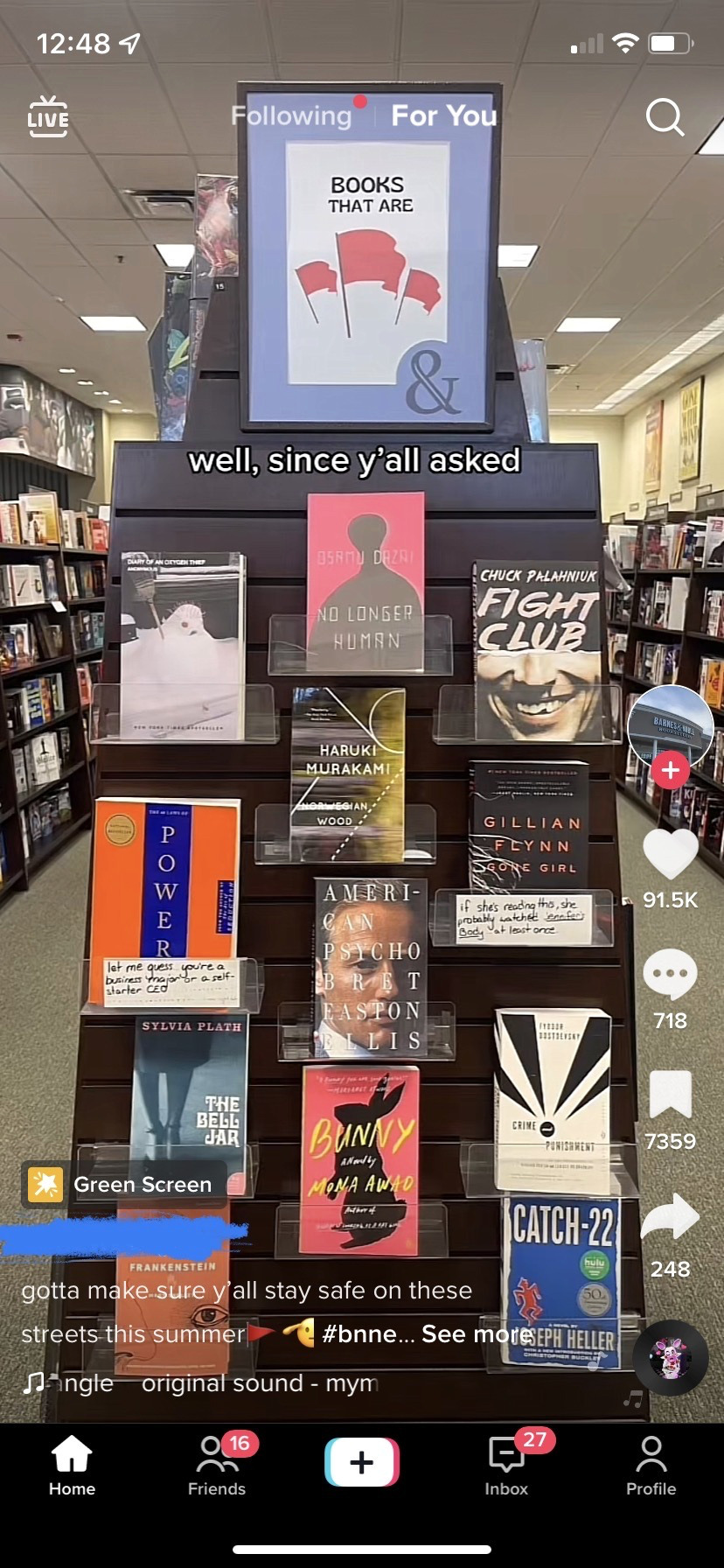
i added the following tags:
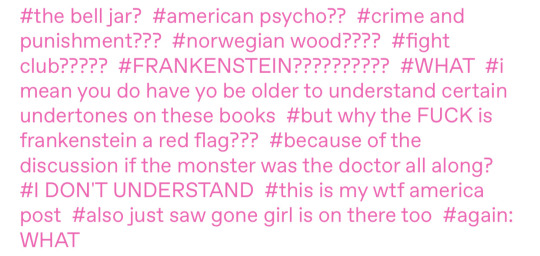
let's start by saying i happen to LOVE haruki murakami and i think his philosophical takes on his books are marvelous. like i said in the tags, you HAVE to be older to understand some things that are not explicit when you're younger or on a first read-through (for example, fight club doesnt pack the same punch [haha punch] when you read it a second time, then you see the signals pointing to the end were there all along but you didn't pick up the information). that's what i mean by saying picking up undertones when you're older, you have more information to contextualize (or re-contextualize) a book.
like, imagine you're 14 and you read american psycho. you probably don't even know what a yuppie is. and by missing that you're missing why bateman acts the way he does. and it does the same thing fight club does, which is to present us with unreliable narrators. but again you may not pick that up until you're older and can understand the themes of toxic masculinity (fight club) or the objectification of women, critic to the capitalism model and mental health issues (american psycho).
i love sylvia plath but admittedly, you do have to be a certain age to read the bell jar because of its themes of mental health, depression and suicide, but those are not red flags, those are triggers. why are these people keeping away a beautifully written story about mental health issues saying it's a red flag to read this book? this makes no sense to me. and tbh i HAVE to laugh at the sticker on gone girl. "if shes reading this she probably watched jennifer's body at least once". this cracked me up. i am aware of its flaws but i love jennifer's body (and it's a fuck you to men everywhere despite the ending), and that comment is so correct. gone girl also says fuck you to men, and it should not be considered a red flag. like... grow up maybe.
now, about the thing that will probably haunt my dreams this night. HOW IS FRANKENSTEIN ON A RED FLAG SHELF?! sure it's philosophical af but i read it at a young age and as i grew up i reread it a lot (i do have this problem, instead of buying new books, i reread mine because having dynamic reading means i end them REALLY fast and i end up with the same books to read lol), understanding more and more with more age. HOW in the world is this book a red flag? i honestly can't see it. yeah it is horror and a bit sci-fi but i was reading stephen king by age 9 and i turned out (mostly) fine. this one pisses me off to no end.
anyway i don't even know if anyone will read this but i already typed everything so. i'm ending these here. if i misexplained or mansplained anything pls let me know (i'm a trans man so please fell free). and if you wanna know more about the books that i mentioned both in the tags and this post, i can try and give a trigger warning or a spoilers-free synopsis of the ones I've already read.
#bookblr#fight club#frankenstein#the bell jar#gone girl#american psycho#crime and punishment#norwegian wood#more like EVERYTHING from:#haruki murakami#wtf america#calaboca miguel#my opinion#red flag books#long post
309 notes
·
View notes
Text
Purim: a Jewish holiday and wild ride from start to finish
So let me tell you about the absolute soap opera that is the Jewish holiday of Purim. The scene is set in ancient (appx. 4th century B.C.E.) Persia during the first Jewish Diaspora, in the city of Shushan (typically identified in secular sources as Susa, a now-abandoned ancient city in what is now Iran). I’m telling you, as a work of literature (even beyond theological implications for Jewish people), this book has everything: love, drama, royalty, intrigue, ego, plots, irony, mystery, and a strong female lead.
[some non-slur swearing below]
Ahasuerus, party-loving king of Persia executed or exiled (translations argue) his wife Vashti, and had to find a new queen. Why did he do this, you ask? Well, it really starts with an 180-day party across his kingdom for all his subjects to celebrate the third year of his reign. After that absolute rager, party-bro KA has another one immediately after for a week, this time just for the capital city of Shushan. Vashti was having a woman’s party in her quarters, presumably living her best life, when party-bro sends his top seven yes-men to deliver a message to Vashti. This sleaze-ball wants her to appear at his party in front of everyone, wearing her crown, with the clear implication being only her crown. Vashti more or less tells him to pound sand (I mean, not the literal translation, but that’s the sentiment).
KA’s advisors convince him that this is not only an offense against the king but also against all the men in the country (ah, the joys of ancient patriarchy and toxic af masculinity). KA writes a degree that women must respect their husbands so he has an official reason to get rid of Vashti. Vashti is soon thereafter out of the picture and the king is short a queen. Whether she was a Wise Lady With A Point Who Got Screwed Over or a Vicious Jew-Hating Adulteress Who Had It Coming has been a matter of furious debate for over two millennia (the Babylonian Talmud and the Jerusalem Talmud vociferously disagree on her). In any case, KA regrets it pretty quick and wants a new queen.
At the behest of his advisors (you know, since their last advice worked out soooooo well), KA had a big contest/forcible gathering of young women from around his kingdom and a Jewish woman, Hadassah, was the winner. Hadassah was an orphan raised by her cousin Mordechai in the city of Shushan. Hadassah is more commonly known as Esther, because she changed her name to hide her identity as a Jew (at the behest of Mordechai). In any case, KA decided he liked Esther best and she became queen (it’s specifically mentioned both that he loved her most and that the palace staff liked her because she was nice to them-it’s unclear how much of an influence the latter was).
Concurrently, a wicked man named Haman was the top advisor to the king and the king would basically rubber-stamp whatever Haman wanted. Haman was a raging Jew-hater-this will be relevant later.
Some time into Esther’s reign as queen, Mordechai, who has taken to hanging around the gates of the palace to keep in touch with Esther, overhears a plot by two guards, Bigthan and Teresh, to kill the king. Mordechai alerts his cousin, and she tells the king. It’s recorded in the book of deeds and life keeps moving.
Some time later, Haman decides (after a promotion to head lackey) that he wants all to bow to him as he passes. Mordechai refused to bow to Haman every single day (citing that as a Jew he bowed to no man), and that did not sit well with Haman. So despite being prime minister and presumably having more important things to do, “genocide the Jews” made it to the top of to-do list. He didn’t like them before, and Mordechai refusing to treat him like a special snowflake was something he took really, really personally (totally can’t think of any modern politicians like that, nope). He told KA, who frankly doesn’t seem to ask enough questions, that there was a people disrespecting the king and his laws throughout the land, and could he pretty-please exterminate them. As a bonus, Haman would “donate” 10,000 silver kikar to the royal treasury (modern conversion vary, but all agree this an absurd amount on money).
KA handed him the royal seal to do so. Haman was feeling lucky I guess so he decided the best course of action was to draw lots to pick the day for the massacre. [Purim is lots in Hebrew, so that’s where the name of the holiday came from]. The message went out to all the provinces that on the thirteenth day of the twelfth month, that they citizens and leaders should murder all of the Jews, young and old, man, woman, and child, rich and poor and take their possessions as spoils.
As this wasn’t exactly a state secret, the Jews knew and were quite distressed. The planned slaughter was like a year out, but what the actual fuck were they supposed to do? If you lived in Persia at that point that, the empire was functionally your entire world, unless you were fabulously/ridiculously wealthy and well-connected. Having several months notice the other locals and your rules were going to slaughter you and take your stuff isn’t particularly useful when there’s really nowhere to go.
In Shushan, Mordechai (who, although not explicitly in text, is in oral/Talmudic tradition a leader of the Jewish community) goes into mourning. He dresses in sackcloth and ashes, he weeps, and he fasts at the gates of the palace, as Jews throughout shushan and the kingdom are doing. Esther hears of her cousin’s mourning behavior and tries to send along nice clothes through a messenger, which he refuses. It is then that she learns of the decree. Mordechai (through the messenger) implores her to go ask the king if the Jews not getting murdered could be a thing. Esther explains that she could be killed for approaching the king unsummoned. Mordechai stresses the severity of the situation. Esther agrees to ask the king and tells Mordechai to have the Shushan Jewish community fast day and night (as opposed to just day as prior) for three days, and she and her handmaidens will fast too (no word on what the handmaidens thought of this).
On the third day, Esther bravely approached the king, asked him if she could request something. He said anything, up to half his kingdom (which implies to me that homedude, for all his flaws, was actually into her). Esther invited him to a party, where he and Haman would be the only guests. At the party she asks if she can another request. KA is open to it and she invites him to another party the next night. Party-bro king is obviously down and Haman is tickled to death at this second invitation.
He goes home to brag to his wife, Zeresh, about the invite and also to bitch about how angsty he is Mordechai is still alive (this angst reignited by passing him on the way home). Zeresh suggests he have fifty-foot gallows built to make Mordechai an example on, with the king’s permission, ASAP. Haman orders the building of the gallows, feeling secure in the knowledge that his bestie the king will execute Mordechai on them.
Back at the castle KA can’t sleep. He demands a bedtime story from the his records, because those will presumably put him to sleep. The story that gets read, ~coincidentally~, is of Mordechai saving KA’s life. Haman had sidled on up to the castle to speak to the king about killing Mordechai, and the king called him in. KA asks Haman, if he were to honor someone, what should he do? Haman is thinking “this is obvi about me” and tells the king that the honoree should be donned in royal clothing, and ride through the streets on a fancy horse with people someone shouting how great he is. KA is like great, love it, perf, go do that for Mordechai. Haman is not a happy camper but does the thing. After that, he goes home and tells Zeresh about it, who warns him that this is a very bad sign.
Finally, that night is the night of Esther’s second soiree. Haman and KA attend. The latter offers to Esther anything she wants, up to half of his kingdom. Esther asks that her life, and the life of her people be spared. KA is like “whomst” and Esther revealed it was Haman. At this point Ahasuerus.exe stops working and he takes a walk to the gardens. He comes back to see Haman begging Esther for his life, and KA thinks Haman is assaulting her. Haman was seized by nearby guards.
One of the chamberlains is then like, hey, KA, coincidentally there’s these super high gallows Haman just had built. Why not take care of the problem that way? (The fact that the random nearby chamberlain was like yup, that dude, hang ‘em in the morning, probably says a lot about how Haman treated most people around him, even more than forcing all to bow to him). KA orders it be done.
Not that Haman was around to be sad about it, but what happened next would have massively pissed him off, as his old job then went to Mordechai. Esther then implored of the king that the degree to allow the massacre of the Jews be reversed. The king couldn’t Cntrl+Z the order to murder-all-the-Jews, but he could issue an order that they could fight back. The proclamation was sent throughout the land, and the Jews were able to prepare. Since the royal decree had been amended, the governments (princes, governors, satraps) largely reformulated their plans accordingly, but plenty of Jew-haters still wanted to use the opportunity. The ability to self-defend meant that the communities weren’t massacred. In most of the kingdom, the Jews were now safe. Outside of Shushan, the fourteenth of Adar became a feast day.
Shushan was still not safe though. Antisemites were still out and mad (and apparently had not learned from the previous day), so Esther asked the Jews of Shushan to be allowed to defend themselves once more. Her wish was granted, and the Shushan Jews were able to defend themselves once more (so Purim is celebrated a day later in walled cities).
The story ends with the decision to write it down, and although there some debate on authorship, it is traditionally attributed to Esther herself cowriting with Mordechai.
Nowhere in the book is God mentioned. Nowhere is there divine intervention (at least not explicitly). Just Jews sticking up for themselves, being brave in the face of mortal peril, and a metric fucktown of chutzpah.
#jumblr#purim#purim story#jewish soap opera for real though#purim 2021#purim 5781#what is purim#purim explained#jewblr
453 notes
·
View notes
Text

I noticed something interesting about Raya And The Last Dragon that I also saw in the new Lost in Space series and the last Star Wars trilogy.
Now there have been female villains throughout entertainment history but as of late, there has been a sub-current of storytelling in which you have women who serve as the rah rah girl power hero... and normally in these plotlines you have the man as the total fuckup. Woman good man bad, or so the trope goes. But noep... not in these cases. Now you're seeing rah rah girl power and oh my God woman you're a facepalm-level fuckup in the same storyline. Then there's the men in the middle who prove to be competent.
This is important to watch because there is a certain widely-believed "fact" of male versus female development in real life. Basically in reality men are perceived as being the best and worst in terms of competence. I'm talking about the male variance hypothesis. Men dominate the genius and dumbass ends of the intelligence spectrum. When you translate this theory to story telling, you often see men as the most heroic and competent and also the most pathetic characters. Women lie in the middle.
As of late, however, an equally valid and provably true reality has begun to find its way into story telling: there are also Apex women and Nadir women as well: the really competent and heroic women and the really pathetic villainous female losers, often clashing with each other. With male characters stuck in the middle. This also happens in real life.
It is interesting to see this in story lines, and I'm seeing it more often as of late. Welcome to the 21st century, folks. We don't have flying cars but we have a sea change in how writers portray men and women, and the winds are shifting toward balance.
The last three Star Wars movies were a disaster, let's get that out of the way. Kathleen Kennedy screwed that pooch with no condom or lube and not even a fucking reacharound and left the franchise tyrannosaurus wrecked on the train tracks like a Ford Pinto that butted heads with a freight train. That said... as we know, the top hero was a woman, Rey. But the worst most pathetic character in the show, the loser who stood apart in the ninth level of character development hell, was also a woman... Captain Phasma. Even as a villain she flew like a lead balloon, a total fuckup. Poe hung around the middle to top in terms of competence while former sanitation worker Finn was in the middle and actually he also had some heroic moments. Neither of them sank anywhere close to Phasma's level of fail.
In Lost in Space the top doers in the show were the women. Little Will Robinson was mid tier (in my opinion, your opinion may differ) but often fell behind Maureen and Judy (again my opinion) in prominence, except he had the Robot backing him up, which pushed him closer to top tier (of course he was supposed to rise to top tier in the future but the series isn't going to get there). But who's the absolute most pathetic? Smith... this time a woman. And I mean she really scrapes the bottom of the barrel. Not that she's poorly written, far from it! ... but... damn.
Raya follows this pattern but quite outstandingly. Raya is the heroine, titular character and the savior of the world, and the dragon who saves the world with her is also a woman. Go girl power, right? Not so fast. Without going into details let's just say Raya's Mary Sue card went up in flames from the word go. Then her female rival goes and fucks up on a level so bad that it's just plain shocking to behold. This same dumbass woman then comes back later and capitalizes on her fuckups and almost causes game over for everyone. This villain is a perfect translation of everything you see in toxic masculinity tropes into female form. Then there is one top tier male that is pulled from the story early on, and then one male who does a heel-face turn and rises to the level of a competent sidekick and another young male who is kinda okay. No male in the entire story are as pathetic as the (as I count it) three true villains who are all female.
It is quite interesting to see the variance effect genderflipped like this. Once is a coincidence... but three is a pattern. In my opinion? Writers are doing this unintentionally in a push to be edgy and unique. And it is worthy of being noticed.
8 notes
·
View notes
Text
Prince Harry, The Press, and Men's Mental Health
On mental health awareness week, why are the press attacking Harry for speaking out about his mental health?
Eliz Mizon
1 hr ago
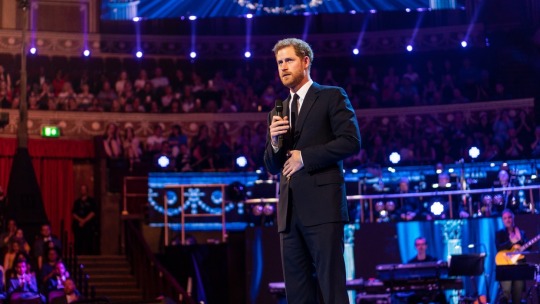
Credit: Raph_PH
It’s Mental Health Awareness Week, and the British tabloids have decided to spend it attacking a man who is speaking out about how they damaged his mental health.
You’d think as professional communicators they’d have the PR nouse to know this was a bad look but, so powerful is Harry’s condemnation of them, they can’t help but go full death throe.
Harry’s May 13 appearance on actor Dax Shepherd’s podcast Armchair Expert has been framed by tabloids as “blasting the royals”, “bitter”, and “low”.
The usual suspects (Sun/Mail/Express) have put their familiar rabidity to work defining Harry’s speaking out about his life as a royal, in particular its effects on his mental health, as ‘manipulation by Meghan’ or the apparent crime of ‘insulting/breaching the trust of the royal family’ (something the tabloids would never do, and are definitely not doing literally right now).

[Twitter avatar for @Jasamgurlie
BLACKLIVESMATTER
@Jasamgurlie
Yep, Meghan, The Duchess Of Sussex made him say it all. 😂
The way I can keep pulling out these clips… Image
May 14th 2021
119 Retweets464 Likes]
Simply, Harry has called out the tabloids more publicly and clearly than ever. As an insider of key areas of British imperial nationhood — the royal family, celebrity, the army, the public school system etc. — Harry has powerful insights into how UK power works, and he’s saying them out loud, often. As media critic Mic Wright said in his newsletter this morning:
“In the most privileged professional wrestling ever, Prince Harry has broken kayfabe.”
The reason the tabloids are so desperate to push a narrative of Harry as ‘royal family-blasting’ is because he is actually tabloid-blasting in defence of his family.
Listen to the podcast and you’ll hear him discussing the way the royals’ relationship with the tabloids, among other traditions, has harmed them. His family has long been part of a “business model”:
“It’s the job, right? Grin and bear it. Get on with it. I was in my early twenties and I was thinking, ‘I don’t want this job. I don’t want to be here. I don’t want to be doing this. Look what it did to my mum. How am I ever going to settle down and have a wife and family, when I know it’s going to happen again?’ I’ve seen behind the curtain, I’ve seen the business model, and seen how this whole thing works and I don’t want to be a part of this.”
Harry speaks eloquently, confidently, and convincingly about the toxicity of the tabloid machine, not only where he is concerned but for countless private and public citizens. And this is not limited to the damage of the initial coverage (coverage being a respectable euphemism for lying, hounding, invasions of privacy, doxxing, etc.) but also in its subsequent silencing effect:
“I used to be fearful of it. Now, it’s almost like the same groups of people that come at it so negatively or try to turn it against you or weaponise it, and therefore prevent so many millions of people from doing so, actually encourages me to speak out more… I’m going to be vulnerable, if I get attacked for it, let’s see who’s actually attacking me and what’s their story? What’s their agenda? Who do they work for?”
The tabloid press thrives on battering and demeaning people. As the cynicism of the below cartoon shows, as soon as somebody takes control of their own coverage and narrative, they are further battered for doing so:
(If you want to see Piers’s tweet click on the link below)
[Twitter avatar for @piersmorgan
Piers Morgan
@piersmorgan
Nailed it @BrookesTimes 👍 Image
May 15th 2021
1,023 Retweets8,839 Likes]
Ultimately, in speaking out about press abuse, Harry is doing important work. But in speaking out about men’s mental health, he’s doing desperately necessary, urgent and crucial work that’s likely life-saving.
This week I rewatched The Work, one of the most remarkable documentaries I have ever seen (and I don’t say that lightly.) There is plenty to say about the skill of putting such a film together without disrupting The Work itself, but that’s another article. What I felt particularly keenly this week was how clearly the film demonstrates masculinity in crisis and how it is beginning to be healed - so many men, from the life-serving gang member, to the frat bro, to the meek guy whose Dad didn’t let him help out on the car when he was a kid, have been pummelled into emotional detachment and isolation.
It breeds rage and damage. Damage that, as one of the facilitators says in the film, comes out “sideways” in all areas of life, particularly at the people in your life, spreading exponentially.
As a primary body of communication, the press has a huge impact on public health—mental and physical—and this same emotional detachment, particularly in tabloid reporting, is crystal clear. (Papers are run by people, after all.)
Occasionally, when they do show some semblance of empathy, it’s to pull on heart strings in order to sell more papers, rather than an attempt to actually examine a situation responsibly and with heart.
This fakery is exemplified by the Express’ approach yesterday: create a cover that appears to empathise…

Image
…but also run numerous meritless stories that slam Harry (and Meghan, of course) personally. They also wrote a handful of pieces that appeared positive, but these equally reactionary pieces were buried among countless negative takes.

Articles tagged with ‘Prince Harry’ on the Express’ website today.
It’s celebrity gossip, pure and simple.
Harry is a harbinger for change like many others—he just happens to be a very unique one, given his rogue use of fame and power. Not only change in how the press works (and potentially, though he has not been a proponent of this, the capitalism system that has molded it) but also of our national view of the status of the monarchy, both in their public and private lives. And crucially, of the role of societal structures in producing mental health effects and a certain type of ‘correct’ (toxic) masculinity.
People are working to create healthier structures in place of these, and right-wing reactionaries are flipping out. Those who deride these changes as ‘woke’ etc. have something—money, power, their identity—to protect. Those of us who seek these changes are building a healthier more equitable society for even those reactionaries to better understand who they are.
8 notes
·
View notes
Text
Day 3: Vendetta against Bro
Welcome back to more Homestuck Liveblogging. Picking up with Nannasprite as she prepares to give John the Dirt.
https://homestuck.com/story/421
Sburb’s opening move is to take John’s Dad away from him. If @mmmmalo‘s theory about psychological storytelling is to be believed, Sburb provokes fear and then manifests it in the form of a character’s antagonists. If you wonder why I bring them up so much, it’s probably because I’ve been reading their blog lately. I am almost always game for more Homestuck theorization, and would love to be able to reference more people and engage with their thoughts in my theoryposts and liveblogging, so if you know somebody with good takes, please pass them along my way.
The Incipisphere, like John’s name, was invoked into existence by player/character action, but paradoxically, has always been that way. By engaging with Sburb, John authenticates its retroactive existence, like a mailman taking a signature of receipt for a package.
When we engage with the fixtures of our cultures and material realities, we too, authenticate them. This can be good or bad - when we communicate with each other, recognize each other, we authenticate each other too. Observing and being observed is a mutual act of validation for everyone involved. I see you seeing me seeing you.
I’m full of horseshit again. Read some more horseshit after the break.
Content Warning for this one: Pedophilia Mentions.
https://homestuck.com/story/422
There’s a lot to unpack in this sequence of pages, and I’m almost certainly going to miss a lot of it, but I’ll come back to stuff that I miss as it comes back up in later pages.
As a Crucible of Unlimited Potential, Skaia can become absolutely anything, and the shape that it will take on will be influenced by the actions of the players. But it isn’t anything yet.
This is the second time in two pages that Nanna has brought up the light-darkness dichotomy of the forces at play in the Medium, and after just talking about the act of mutual authentication through mutual observation, my brain is screaming the words Hegelian Lens at me. Might go somewhere with that too.
I also wanna call attention to the name of the Medium. As a story about stories, it only makes sense that the name of Homestuck’s main otherworld should evoke the field used to propagate mass communication.
https://homestuck.com/story/423
I’ve always thought that it’s interesting that of the two forces in the Medium, the players have natural allies in the form of Prospit. The choice here is not to act on behalf of one or the other, the choice is between Action and Inaction. Not doing something is itself, doing something.
https://homestuck.com/story/427
You Can (Not) Redo.
Sburb relentlessly drives its players forward. If you attempt to go back, or stay where you are, you will be punished. No getting your parents back, no getting your planet back.
What’ll it be John? Advance or Advance?
https://homestuck.com/story/431
John is extremely resistant to being made to do things that he doesn’t want to do anyway, even by Narrators.
More thoughts about Cake and Baked Goods in Homestuck and in relation to John. The other main characters baking is associated with in Homestuck are all women - The Condesce, Meenah, Jane, Nanna - and baking in general is pretty strongly associated with women, moms, etc. I’ve always thought it was a little out of place amongst Dad’s other character traits, which are definitively masculine. Maybe it’s for exactly that reason - baking is culturally feminine.
Maybe John’s resistance to baked goods is because he’s uncomfortable receiving feminine affection (especially, but not only from his Dad). It’s like getting kisses from your Mom in public or other public displays of affection between men and the women in their lives, or even men and other men in their lives. John is certainly pretty clueless about affection from women when he receives it later in the story. On the other hand, he responds very well to masculine displays of affection, like the aloof but ebullient cards he gets from his Dad, or the one-upsmanship between him and Dave.
(I’ll have to think some more about the capitalism thing from my other post.)
https://homestuck.com/story/433
More of Rose seeing enemies in every shadow. Then again, could it be Jasper’s fault that they’re in this mess?
https://homestuck.com/story/442
I think the fact that we jump to this point in the past suggests that Rose is probably reminiscing about this spot, going along with my theory that when the Narration is focusing on a character, it’s also giving us that character’s stream of consciousness - we’re experience what Rose is experiencing.
That probably goes a long way to excusing the kind of puzzling, irritating experience we have of our first minutes with John. Due to his tendency to get distracted by things and forget how things work, we have to suffer through his own inability to navigate his disorderly environment exactly the same way he does.
Oh, so that’s why this story gets compared to Ulysses.
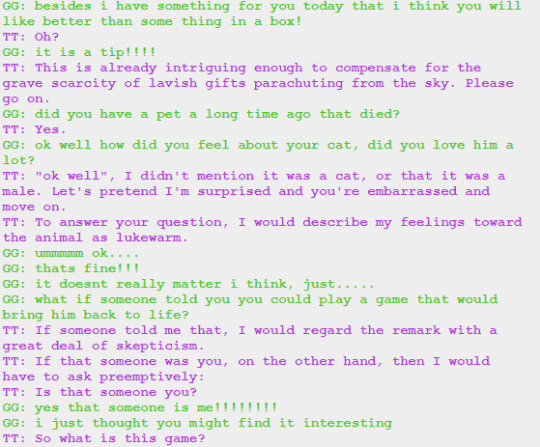
It is Jaspers’ fault that they’re in this mess. My hypothesis gathers more data.
https://homestuck.com/story/444
The third of the prose poems. Drat. Got to Dave’s Poem before I even had the chance to write about Rose’s Poem. Guess we’ll come back to this one later later.
https://homestuck.com/story/445
I’ve almost certainly missed a few of these gags by now but “Left him hanging long enough” is one of the jokes that Homestuck reproduces over and over again. Homestuck reproduces itself frequently, like variations on a theme. Its self-referential nature could be called incestuous, as it turns one-off gags into recurring gags.
https://homestuck.com/story/448
While Bro and Dirk are both definitely irony ninjas where Dave is just performing irony to get his Bro’s approval, I think all the irony is an effort to distance themselves from the fact that they really do sincerely enjoy the things they’re “ironically” into. That too, is probably ironic.
Unfortunately, the actual subject matter of Bro’s interests, while innocuous in a vacuum, are still extremely inappropriate to leave out where a thirteen year old can have access to them. Bro probably isn’t a pedophile, but between the martial education, and the uncomfortable degree to which he involves Dave in his sex life, his relationship with Dave recalls pederasty which is one of many, many links between Dirk, Bro, and the Classical Hellenes, and Monastic Shudo, a similar practice historically attested from their beloved Japan. (The term Platonic Relationship is called that because Plato is one of the first Greek Philosophers to argue that maybe it would be better for students’ education if they weren’t also sexually involved with their mentors? Or so the story goes.)
I may have a bit of a vendetta against Bro Strider, which probably has at least a little to do with the fact that, when I first read Homestuck, I got fooled into thinking he was kind of awesome, and it wasn’t until I was able to deal with my own childhood abuse and the fact that I had been indoctrinated with a lot of the very same toxic ideas bro inculcated in Dave that I was able to realize that Bro Strider is kind of a horrible guardian, so I have a sort of special ire directed at this character. Maybe I’m afraid in another life, I could have grown up to be that kind of creep. I’m glad I didn’t.
https://homestuck.com/story/449
All throughout this section, the narration suggests that Dave is both subconsciously aware that his Bro’s pasttimes make him uncomfortable, but trying to soothe himself by affirming them. So, in spite of my sharing some youthful confusion with Dave, the Narrative at least communicates to us from the very beginning that something is off about Bro.
https://homestuck.com/story/452
To interrupt my dark and brooding reverie, please enjoy some Skate 3 Glitches.
I guess here’s a good place to note that I am going to be using the #personal stuff hashtag to denote when a post contains me alluding to my own dark and troubled past.
https://homestuck.com/story/457
The password is six letters long, and based on the fact that it’s the most awesome thing that it could be, I have no doubt that it’s Strider.
https://homestuck.com/story/465
Yup.
https://homestuck.com/story/466
:)
It warms the cockles of me heart that Dave’s first inclination when he starts to flip the fuck out is to reach out to John Egbert.
https://homestuck.com/story/484
8^y
https://homestuck.com/story/485
Remember that one-upsmanship I was talking about? Any chance Dave and John get around each other, they talk each other down. I’m not sure if Andrew was saying anything about Toxic Masculinity at the time. I expect, like a lot of us, he didn’t have those words on his mind in 2009, but that’s textbook toxic masculinity, and I think when viewed as a complete work, Dave and John’s growth out of it is a sign of healthy maturation. Build each other up, boys, don’t tear each other down. In this life, we’re all we’ve got, and you owe it to each other.
https://homestuck.com/story/503
Leveling up is one of those weird things about Roleplaying Games that I didn’t realize until some point in the last two years is kind of an integral fixture of them. Overcoming hardships permanently makes you stronger in games that have an experience-level feature in them, and once you’re strong enough to beat a challenge once, you’re almost always strong enough to overcome that challenge in the future.
It’s a kind of storytelling that on closer examination is weirdly propagandistic, but it’s actually all over media. It’s pretty rare for a story to say “When you overcome a challenge, good job. You will have to overcome that same challenge again and again - maybe every day of your life.” The interesting thing, and I might come back to this, is that I think Homestuck actually takes this latter approach. Exactly the same emotional struggles they begin the story with are the ones they spend all 8000 pages of Homestuck agonizing over, and these characters will probably spend their entire lives wrestling with the baggage of their youth.
Suffering and toil is the fate of humankind, I suppose.
https://homestuck.com/story/518
Surrounded by Idiots.
https://homestuck.com/story/538
Saw is a story about a serial killer who subjects his victims to gruelling trials catered to make them face their own fatal flaws and emerge changed into better people, which is a lot like authorial scorn, which Andrew describes thusly in the commentary for Vriska’s introduction: “It's not as ill-willed as it might sound, but more of a universal principle of storytelling that for things to be interesting, harsh outcomes must befall those you create, in response to which they may thrive or fail. Which to the casual observer may read as hate.“. Lord English and Caliborn bear visual similarity to Jigsaw’s creepy puppet avatars, and serve as instruments of Andrew’s Authorial Scorn. Bro reproduces the same kind of creator’s hatred that Lord English bears toward all of Paradox Space, and reproduces it for the dubious benefit of his ward - Dave is to overcome the challenges thrust upon him in order to become strong.
https://homestuck.com/story/571
Dave does not care for being watched.
https://homestuck.com/story/588
If Dave’s first instinct for when he’s uncomfortable is to go talk to his friends, his second instinct is to attack.
https://homestuck.com/story/625
I don’t remember where I read it originally, it’s too far away in the past, but each of the items in the Rocket Pack is representative of one of John’s friends. The Cinderblock Dave, the Flower Pot Jade, the Violin Rose. John’s friends, his connections and bonds (Blood) tie him down and prevent him from indulging his most impulsive behaviors (Breath).
https://homestuck.com/story/631
In addition to Mad Science (or perhaps as an aspect thereof) John demonstrates remarkable lateral thinking.
https://homestuck.com/story/635
Alchemy has helped me get my thoughts in gear on a subject I glossed over the other day - the way the characters’ personality traits and objects fill the background radiation of the comic. In a way, the same thing is going on when the characters produce all kinds of neat shit from the odds and ends around their house as is going on when Sburb populates itself with symbols from the characters domestic lives.
Clowns become a threatening symbol throughout all of Homestuck, basically because there are a bunch in John’s house from a Doylist perspective. From a Watsonian perspective, Sburb seems, through the vehicle of destiny, to deliberately latch onto things from the players’ lives that will help them to contend with their anxiety and trauma. John has bad dreams about clowns, and seems to conceptualize himself as a clown in his self-critical estimation of himself. Maybe even as a Dark Mirror of his aspirations to be an entertainer? Is a Circus Clown a funhouse mirror version of a stage magician? I don’t have a follow up to that question, but it makes me think. If you checked out the essay from Malo I linked earlier, you might recognize some other things that John is afraid of which characterize his session, like his alleged fear of heights, and his anxiety about confronting his Dad.
I think that’s all for this evening. Another 200 pages down.
Cam signing off, alive and not alone.
12 notes
·
View notes
Text
How Does Persona 4 Uses Liberal Arguments to Come to Conservative Conclusions?
After playing Persona 4 Golden on PC recently it’s quickly become one of my favorite RPGs, but from my experience even die hard fans admit their are some problematic elements namely in terms of LGBT representation. However, when I got to the Naoto’s dungeon, I initially was pleasantly surprised. Naoto was struggling with his identity in a profession dominated by toxic masculinity, constantly trying to live up to his and the world’s perception of who he should be. I had beaten the boss and we were being given a speech on how Naoto should just be himself and all that jazz. But then Yukiko just chimes in “Yeah, you don’t really want to be a man do you?” and then Naoto is just like “Yeah I guess you’re right.” The tonal whiplash blew me intro the stratosphere. For my money we had just spent an entire arc reaffirming the fact that Naoto’s transgender status was valid, but in one line of dialogue the game threw all of that our the window. The weirdest part was, when I went back and looked at the rest of the game, the same pattern was repeated over and over again. How does Persona 4 use a liberal argument to come to a conservative conclusion?
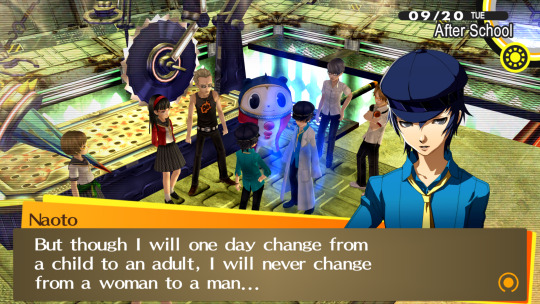
Well because we all know about the problems with Naoto and Kanji I’ll leave them out of this for the rest of the post and instead prove that this is a reoccurring problem by quickly focusing on some other social links. Yukiko initially rejects tradition when she rejects the idea that she will inherit her family’s inn. She’s confident and self-assured that she can make it on her own, taking you shopping so she can learn how to cook, etc. But then a few evil tv crews come to her front door and she makes a 180, determined to “give back after all they had done for her”. Yumi (drama girl) is angry with her father because he was a deadbeat dad and now is determined to come back into her life. But then she quickly makes a 180 and goes so far as to quit drama club to try and find out “why her parents gave birth to her”. Rise quits her life as an idol to escape the horrors of show biz. But then she returns after remembering she helped some fan about bullying. While becoming an idol again isn’t very conservative, its still this idea that she’s going back to her roots rather than trying to change.
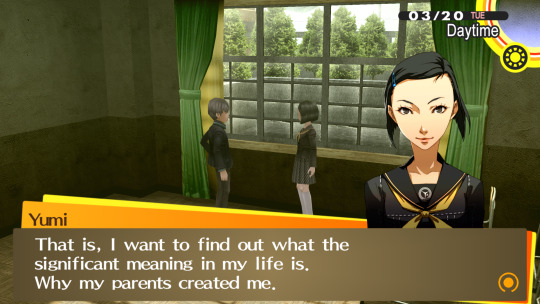
Now admitted I didn’t max all my social links on my first playthrough, but among the ones I did this trend held true for about 50% of them. For fairness I’ll just bring up that both Kanji’s and the Devil’s Social Links seemed pretty openly Liberal to me with Kanji fighting both against toxic masculinity and the police and the Devil fighting against work culture. After you deal with Kanji’s shadow form of every problematic stereotype of gay men, his character feels very close to positive representation.
Back to the matter at hand, even outside of social links this dichotomy holds true. The game is pretty obviously anti-consumer culture and therefore can be read as anti-capitalist. However, this ignores that fact that the old shopping district is seen as an unequivocally good even when the encroaching Junes is not. For some reason we come to the conclusion that some capitalism is good even after we criticize elements of capitalism. When we find out that Adachi, a police officer, is the villain and he begin to explain how he “just wanted to own a gun” and how he tampered with evidence constantly, one might think the game is making a statement. However, when we compare Adachi to your surrogate father Dojima we start to realize that Adachi is constantly portrayed as slacking off and not being good at his job. Dojima and Naoto are real cops who are just getting spoiled by a single bad apple and even Chie wants to be a cop when she’s older!
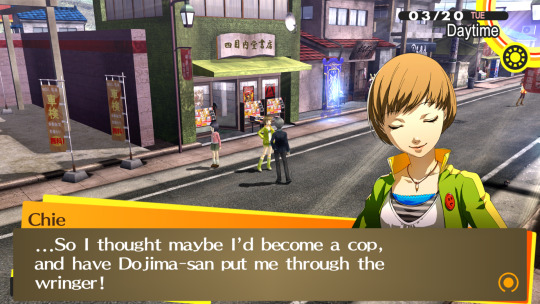
Okay that’s enough of the what, how about some of the why? Well after compiling my previous post about the core themes of Persona 4, it hit me: the central theme of this game is “finding the truth”. This theme does not have a political leaning. Both liberals and conservatives would say they are the “truth”! Naoto’s story and every character’s story was about finding his true self. To a liberal this means accepting that you are transgender and you’re not mentally ill, harmful or alien and to a conservative this means no, you are not transgender you are your biological gender. The same is true for every other aspect of the story that initially seems liberal. In reality when I looked back all they were stating was that we need to search for “the truth” and as a liberal I projected my own interpretation of what the truth is onto that argument. Then the game, a largely conservative one, finally reveals its master plan after taking steps it understood where in service of this conservative conclusion, but which I never thought of that way.
Now this is actually kind of great on the games part. If the game openly dog whistled to conservative ideas and was constantly making openly conservative arguments, I bet most of us wouldn’t be able to find much enjoyment in it. However, seeking the “truth” is such a universal concept that anyone could enjoy a story about! Even though I was very often blindsided by just how conservative this small-town loving game is, I never found myself so insulted that I had to put the game down. Most of the game was 100% universal to the human experience so there was always something I could connect to!
#persona 4#persona 4 golden#p4g#p4#analysis#theme#themes#theme analysis#persona#shadow#yukiko#yukiko amgi#chie#chie satonaka#adachi#adachi persona 4#naoto#naoto shirogane#yosuke#yosuke sagara#yu narukami#nanako dojima#nanako#dojima#teddie#rise#rise kujikawa#kanji#kanji tatsumi#persona 4 steam
25 notes
·
View notes
Link
I emerged from the Sundance Film Festival with offers to act in projects I would never have been allowed to read for a week prior. Most of those roles were still girlfriend, mistress, mother. But there was a new character on offer to me as well, one that survived the story.
Enter, stage right: the Strong Female Lead.
She’s an assassin, a spy, a soldier, a superhero, a C.E.O. She can make a wound compress out of a maxi pad while on the lam. She’s got MacGyver’s resourcefulness but looks better in a tank top.
Acting the part of the Strong Female Lead changed both who I was and what I thought I was capable of. Training to do my own stunt work made me feel formidable and respected on set. Playing scenes where I was the boss firing men tasted like empowerment. And it will always feel better to be holding the gun in the scene than to be pleading for your life at the other end of the barrel.
It would be hard to deny that there is nutrition to be drawn from any narrative that gives women agency and voice in a world where they are most often without both. But the more I acted the Strong Female Lead, the more I became aware of the narrow specificity of the characters’ strengths — physical prowess, linear ambition, focused rationality. Masculine modalities of power.
I thought back to the films I watched and stories I read burrowed deep in the stacks of the library. I began to see something deeper and more insidious behind all those images of dead and dying women.
When we kill women in our stories, we aren’t just annihilating female gendered bodies. We are annihilating the feminine as a force wherever it resides — in women, in men, of the natural world. Because what we really mean when we say we want strong female leads is: “Give me a man but in the body of a woman I still want to see naked.”
It’s difficult for us to imagine femininity itself — empathy, vulnerability, listening — as strong. When I look at the world our stories have helped us envision and then erect, these are the very qualities that have been vanquished in favor of an overwrought masculinity.
I’ve played the Strong Female Lead in real life, too — as an analyst at an investment bank before coming to Hollywood. I wore suits, drank Scotch neat and talked about the women and the men I was sleeping with like commodities on an open market. I buried my feminine intelligence alive in order to survive. I excelled at my linear task of making more money from a lot of money regardless of the long-term consequences for others and the environment.
The lone female V.P. on my floor and my mentor at the time gave me the following advice when she left to partner at a hedge fund: Once a week, open the door to your office when they finally give you one, and place a phone call where you shout a string of expletives in a threatening voice.
She added that there doesn’t actually need to be someone on the other end of the line.
I don’t believe the feminine is sublime and the masculine is horrifying. I believe both are valuable, essential, powerful. But we have maligned one, venerated the other, and fallen into exaggerated performances of both that cause harm to all. How do we restore balance? Or how do we evolve beyond the limitations that binaries like feminine/masculine present in the first place?
In 2014 I went back to the library and encountered Octavia Butler’s “Parable of the Sower,” a sci-fi novel written in 1993 imagining a 2020 where society has largely collapsed from climate change and growing wealth inequality. Butler’s heroine, the 17 year-old Lauren, has “hyperempathy” — she feels, quite literally, other people’s pain. This feminine gift and curse uniquely prepares her to survive the violent attack on her community in Los Angeles and successfully encourage a small tribe north to begin again from seeds she has saved from her family’s garden.
Butler felt to me like a lighthouse blinking from an island of understanding way out at sea. I had no idea how to get there, but I knew she had found something life saving. She had found a form of resistance.
Butler and other writers like Ursula Le Guin, Toni Morrison and Margaret Atwood did not employ speculative fiction to colonize other planets, enslave new life-forms, or extract alien minerals for capital gains only to have them taken at gunpoint by A.I. robots. These women used the tenets of genre to reveal the injustices of the present and imagine our evolution.
With these ideas in mind, Zal Batmanglij and I wrote and created “The OA,” a Netflix series about Prairie, a blind girl who is kidnapped and returns seven years later to the community she grew up in with her sight restored. She opens up to a group of lost teenage boys in her neighborhood, telling them about her captivity and the inter-dimensional travel she discovered to survive it. It turns out these boys need to hear Prairie’s story as much as she needs to tell it. For the boys face their own kind of captivity: growing up inside the increasingly toxic obligations of American manhood.
As time has passed, I’ve come to understand what deep influence shaping a narrative has. Stories inspire our actions. They frame for us existences that are and are not possible, delineate tracks we can or cannot travel. They choose who we can find empathy for and who we cannot. What we have fellow feeling for, we protect. What we objectify and commodify, we eventually destroy.
I don’t want to be the dead girl, or Dave’s wife. But I don’t want to be a strong female lead either, if my power is defined largely by violence and domination, conquest and colonization.
Sometimes I get a feeling of what she could be like. A truly free woman. But when I try to fit her into the hero’s journey she recedes from the picture like a mirage. She says to me: Brit, the hero’s journey is centuries of narrative precedent written by men to mythologize men. Its pattern is inciting incident, rising tension, explosive climax and denouement. What does that remind you of?
And I say, a male orgasm.
And she says: Correct. I love the arc of male pleasure. But how could you bring me into being if I must satisfy the choreography of his desire only?
And I say: Good on you. But then how do I bring you into being?
Then I hear only silence.
But even in the silence I dream of answers. I imagine new structures and mythologies born from the choreography of female bodies, non-gendered bodies, bodies of color, disabled bodies. I imagine excavating my own desires, wants and needs, which I have buried so deeply to meet the desires, wants and needs of men around me that I’m not yet sure how my own desire would power the protagonist of a narrative.
These are not yet solutions. But they are places to dig.
Excavating, teaching and celebrating the feminine through stories is, inside our climate emergency, a matter of human survival. The moment we start imagining a new world and sharing it with one another through story is the moment that new world may actually come.
80 notes
·
View notes
Text
Red Queen by Victoria Aveyard; a blog post by Chelbey Trump
Happy Sunday, everyone! I’m generally going to be posting on Sundays because it gives me all of the weekend to write them. Also, you’ll catch on to the structures of these posts as we go.
This week, I am going to be discussing the novel Red Queen by Victoria Aveyard. Published in 2015v by Simon and Schuster, the novel was on the New York Time’s Bestsellers list. (In the future, I would like to write a blog post about that particular achievement because, let’s face it, almost every book has been on it.)
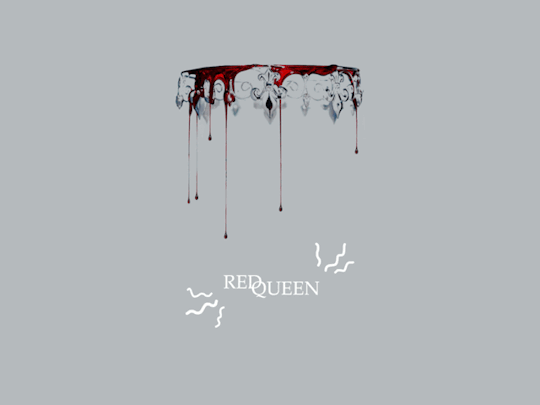
Characters:
Mare Barrow; A 17 year-old pitpocketer, living in the slummiest part of a country, with a younger sibling who has potential for their life, parents who are loyal to-said country even though they’re given the short end of the stick, and a male best friend who is, undoubtedly, in love with her. Come on down, Katniss Everdeen! Oh, sorry, I meant Beatrice Prior. America Singer? Oh, right this novel is uniquely science-fiction, even though it follows all of the rules of a dystopian-fiction series. Ehem: I hate this character. Her arch, though not necessary to the forward motion of the story, was lost completely by a million different subplots and, even, the main plot. I like the idea that, in the midst of becoming the face of the rebellion, she became less of an individual person and more of a loyal person to her people. That being said, she was incredibly selfish, with her pity-part-for-one attitude simply because she was born into the Stilts. She took for granted her sister’s opportunity to provide for their family by dragging into a scheme which destroyed her life. Did she save her by acting the part of princess? Yes, but, c’mon: It was either marry Maven or be killed. I hope that she loses this attitude within the next couple books because;
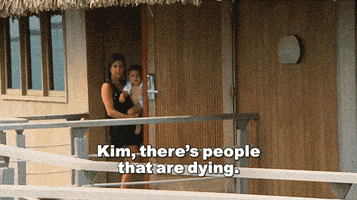
Cal Tiberias; What a hunk! Charming, self-less, sensible, and a future-king? Cal was a strong character, although it could be said that he was weak due to his loyalty to his father which was conditioned inside his brain from a young age. He turned his back on the lower part of his people to stay true to the upper, wealthy, ‘better’ half. He deserved better than this, after showing traits that he was, well, better than this! I understand it worked for the plot line, but how juicy would it have been to see Cal stand up to his father? I loved how passionate he was, though. Mare thought he didn’t care about the divide, but he was noble in saying he didn’t want violence to be what closed said-divide. He was willing to put his men on the same level as the Red soldiers, including himself, to fight the war. That’s hot. In the end, when he defended Mare even though she had offended him, I fell more in love with his character. He had stayed true to himself- or who he was meant to be- instead of a stupid girl, but when they turned their backs on him, he was ready to die with honor alongside that dumb female (synonyms!) If Cal was still the general, then I’d say:
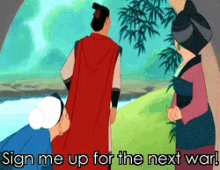
Maven Tiberias; If Cal is a hunk, Maven is that nerdy, attractive guy. He was charming from start to finish even though he was, ya know, the ‘bad’ guy. It was hard to believe him even as the bad guy, however, because he only 17 and played Mare like a game of Chess. It’s understandable that he had, like Cal, been conditioned to love his mother and her cause for all of his life, that the king and Cal were enemies, that Mare could never possibly love him. But, Aveyard literally threw us twenty pages from the end of the novel. It felt rushed, uncomfortable and, well, forced. Overall, I still love his character and I’m excited to see him as a king in the next three books.
Queen Elara and King Tiberias; The. Best. Female. Character. What a literal queen! She didn’t care about anyone’s feeling, had powers which made her stronger than pretty much everyone, and waited so long to let her husband’s head roll so she and her son could rule. That’s amazing! I loved her smug attitude which was revolutionary because she was still a lady. She chided Mare for not acting like a said-lady and did so herself while still manipulating everyone and anyone. We dont see enough strong female characters who are still very much feminine, and we deserve to. Now, for the king: Off with his head! I’m so glad he’s dead because I dont think I could have stood another second of his toxic masculinity. That’s all I’ll say about that.
Ruth, Gisa, and Daniel Marrow; I wish we could have a family which is matriarchal. Too many books rely on normal societorial standards fo household and I’m slightly over it. I understand that in a normal kingdom, men, like Daniel, were the war hero’s, honorably discharged, wise, older, and the most-looked up to in the family. But, c’mon, Mare could literally manipulate electricity and her father couldn’t have made dinner? Her mother was too sweet and quiet and her father too quiet and judgmental. It was too basic and boring. However, I feel awful for Gisa: She absolutely deserved so much more than what she was given by Mare’s horrible decisions.
Honorable Mentions; Kilorn was just so annoying, trying to be masculine yet show his affection to Mare. Get over her, bud, she’s fighting a revolution! Evangeline was annoying, yet so, so satisfying to read about. She was exactly like Queen Elara with all the overwhelming traits of King Tiberias. Lucas, I felt, could have been used a lot more sufficiently than he was. Julian, too, was lost in the fast-paced motion of the novel. Overall, the relationships everyone formed with one another were not illustrated well through the novel. I refuse to believe Mare was falling for Maven, or Cal for Mare, or that Julian truly cared about Mare as much as he said he did because I saw no build up of that love.
Settings:
What Aveyard lacks in characters, she makes up for in description. Although sometimes it felt like she was going overboard with her language usage, fo rate majority of the time, I could see exactly what she was discussing. Her most creative ideas for setting were the forest which was able to prevent pollution from Gray Town, the usage of The Capital River running through the entire kingdom, and the bridge separating Archean and the Silver residencies.
Plot Lines:
Reds vs. Silvers; I hate and love the idea of the high-class citizens having silver-flushed skin and literally silver blood. It took the first half of the book for my mind to comprehend the distinction because I was too focused on hating Mare Barrow (just kidding!) I loved the moment when Evangeline dug her nails into Mare’s arm in order to draw red blood so that her identity would be revealed. But, I hated that there was no explanation as to why there was separation between the two classes.
The Love Triangle (Quartet?); How grossed out would you be if your brother was engaged to the girl you just kissed and made-out with her on a regular basis? Well, put yourself into Cal’s shoes and see you feel. I knew from the moment Cal pretended to be a Red citizen that he was the love interest for Mare- not that she didn’t end up having two others. The personification of his body heat connected to the feelings Mare would have for him, and that was interesting to read about. However, Maven had to be thrown into the mix because he was engaged to her for literal marketing reasons. I shipped Maven and Mare so hard, but Maven apparently did not. I wouldn’t call it a love quartet because we all know Evangeline didn’t actually love Cal.
Brother vs. Brother; The idea of Cal and his father vs. Maven and his mother reminded me of Reign and the relationship between Francis, Queen Elizabeth, Henry and Sebastian. As a fan of that show, I loved this power struggle. The idea of Cal being the OG son and Maven his half-brother showed that his blood did run deep with the Tiberias’. It allowed for him to feel disconnected and to want to follow his mother’s lead to power.
Symbolism and Themes; Let’s be honest here: There were none. Besides the fact that the division between the Reds and Silvers could stand for racism in any and all societies, the novel itself lacked depth. You shouldn’t look to this novel for guidance or meaning. Rather, it is a quick, cute read. Mare’s earrings stood fo her brothers, and eventually Kiloran, but that was literally given to us within the first five chapters. Most of the themes lied along the man vs. nature due to the issue of biological desterminism, and man vs. man for the revolution.
Dream Cast:
Jaz Sinclair as Mare Barrow
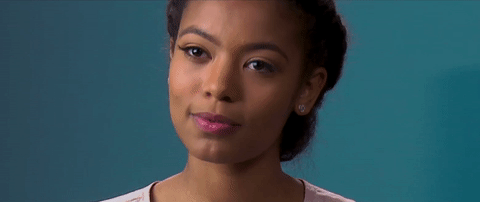
Charles Melton as Cal Tiberias
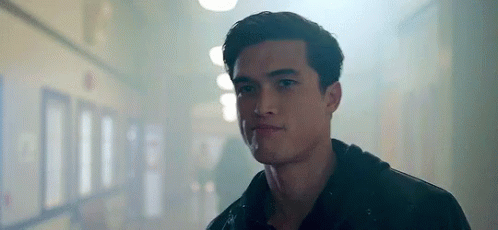
Tati Gabrielle as Evangeline
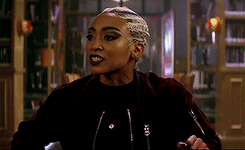
Jaeden Martell as Maven Calore
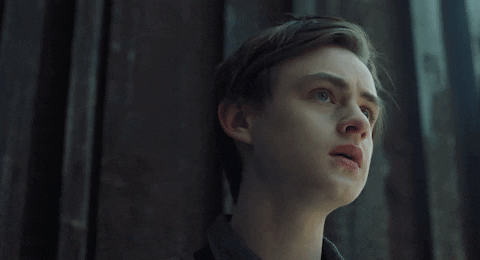
Melora Hardin as Queen Elara
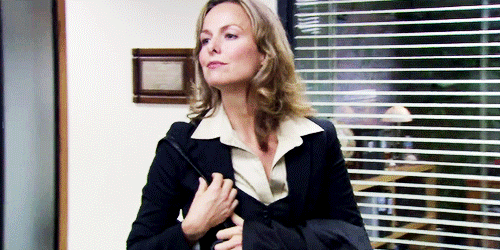
I know, I know, this is not everyone. But, these are the only characters I truly felt needed to be played by specific people. And, yes, some are highly debatable, such as Melora because of her comedic timing, but I think these actors could play these characters well.
Quote Corner:
“The truth is what I make it. I could set this world on fire and call it rain.”
“Flame and shadow. One cannot exist without the other.”
“Words can lie. See beyond them.”
(Victoria Aveyard is a wordsmith. What she lacks in character and book depth she makes up for in language and description.)
Overall Rating: 3.75/5
I know I bashed the book a lot, but it was a pretty easy and cute read. I am going to read the sequel because I am very invested in Maven as character and would like to see what else Aveyard has in store. She took ideas from dystopian novels which were all familiar with and put her own unique twist on them, and I admire that.
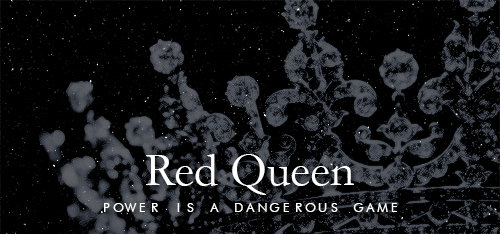
Thank you for reading this week’s blog post. Next Sunday I will be discussing, “The Half of It.” Please like, follow, and reblog my posts to help get me out there. Happy Memorial Day Weekend!
#book and literature#literature#analysis#character analysis#red queen#victoria aveyard#mare barrow#maven calore#king maven#book review#book analysis#science fiction#dystopian#the hunger games#writer#free write#blogger#blog post
20 notes
·
View notes
Text
Reflection “Essay” #2
Hey everyone! I just wanted to take some time this week and talk about something that I think is extremely important, so buckle up, because this piece is kind of long.
Activism is something we encounter in our everyday lives, whether it be in social media, the news, or something ordinary like laptop stickers. Most recently, Black Lives Matter was under the spotlight (as it should) in the wake of America’s track record of police brutality and George Floyd’s death. Unfortunately, the movement that was fueled by public outcry and outstanding shows of allyship in the early summer months has largely vanished.
The voices of many celebrities and influencers on platforms Instagram and Twitter have gone silent, moving on as the news turned away from BLM protests despite the thousands of people that continued to rally around the country and the world. As we wrap up election season and move into December, what the US is focused on now is the soon-to-be former POTUS and other political news. (My point is that the world of media has largely deemed BLM “no longer relevant” despite the ongoing struggle BIPOC folxs continue to face even after thousands of protests nation AND worldwide.)
To all the people who posted black squares with the hashtags #BlackoutTuesday and #BlackLivesMatter, where are you now? Where is the support, the public outcry that had been so loud in June? Why do civil rights only matter when they’re relevant in the media, when you can score easy clout from it?
I’m sure most of them had their hearts in the right place, but the fact remains true that they fell victim to ‘ally theater’, a term that Anderson and Accomando credit Princess Harmony Rodrigez for coining. The two authors go on to say, “The concern here is about activists who focus on performing an identity for an audience of disadvantaged folk rather than doing the hard and often unseen work of social change.” (P 713) and “To get out of the surface-level ally theater loop, white people need to challenge other whites about racism—even when no one else is watching.” (P 714) in their article The Pitfalls of Ally Performance.
That’s where many people fail the first step of being an ally; they mistakenly believe that for a month of sparse posts concerning awareness, they gain the privilege of being an ally. They forget that allyship is a title that needs to be earned. It’s not enough to play activist for a month and then move on with your life—to be an ally, you must continue to be an activist, even if that’s something as simple as shopping at BIPOC small-owned businesses instead of Amazon. (Here’s a little help for those of you who don’t know where to start: 42 Black-owned beauty brands to shop at instead of Sephora, and 108 Black-owned businesses you can check out.) You have to acknowledge the hard work of POC the exact same way you praise white celebrities and influencers for being ‘woke’. A fantastic example is Harry Styles.
For the 2019 Met Gala, Styles showed up to the red carpet in heels and a sheer black Gucci blouse. This made fans go nuts; they praised him for being a camp icon but glossed over equally stunning outfits like Billy Porter’s golden, winged ensemble (who was carried in on a litter!!! by SIX MEN!!!) or Lena Waithe’s suit. This year fans ran to social media again, this time to gush over the photo spread of him in a dress, thanking Styles for ending toxic masculinity (yes this was a Tweet I read with my own two eyes), congratulating him on defying gender norms, and completely forgetting about others who did it before him.
Male and AMAB (assigned male at birth) non-binary stars like Billy Porter, Jared Leto, Ezra Miller, and JVN are only a handful who’ve appeared in public in dresses and/or skirts before, making it unfair for people to heap gratuitous praise onto Styles’s photoshoot. I’m not trying to bash him or anything and I think that cover was gorgeous, but you can’t be an ally while you idolize Harry Styles for wearing a dress but ignore POC/queer folx who did too.
Now, the second topic I wanted to address: a second helping of fake allyship, this time in the corporate realm.
I love June, but it’s also a mentally exhausting month queer individuals who are sick and tired of fake allyship. Cisgenderists crawl out of the woodwork to whine about ‘straight pride’ as if they don’t have enough of it, influencers capitalize on Pride’s popularity to promote their brand, and large corporations break out the rainbow merch to make a pretty penny off the same people marginalize the other eleven months of the year.
June is for people like me to celebrate our identities together, whether it be at a public Pride event or in the privacy of our own homes. It is not for big businesses to slap rainbows on their merchandise and boast false claims of LGBTQ+ support when corporations like Walmart and Starbucks have done nothing at all to support the message or the mission of Pride.
Building an Abolitionist and Trans Queer Movement With Everything We’ve Got by Bassichis, Lee, and Spade writes “transgender and gender-non-conforming people are repeatedly abandoned and marginalized in the agendas and priorities of our “lead” organizations” (P743) and I couldn’t agree more. The fact of the matter is that under this capitalist regime, queer individuals are just another tool for the privledged elite to take advantage of.
Mega corporations claim to be on our side for a month, playing at queer allyship with rainbow beer cans and happy ads that feature more rainbows and scripted proclamations of LGBTQ+ support, but disappear just as quickly come July.
Certain celebrities tweet during Pride, garnering the applause of the public and cause people across social media to ‘stan’ celebrities that post “Happy Pride!” just for the shallow allyship it grants them. And it’s so normalized for public figures to post all month long about Pride, and suddenly stop in July that we don’t question it.
Donald Trump occasionally preaches about his support of the queer community (which we all know is a joke) and how he’s “the first president to openly support the LGBT community” despite the fact that he gutted LGBTQ+ legislation and his terrible track record concerning queer folx. If he really was a queer ally then why, as Bassichis, Lee, and Spade say, is there “ no inheritance, no health benefits from employers, no legal immigration status, and no state protection of our relationship to our children.”?
That’s why I want to put the spotlight on a game called The Last of Us: Part II. It’s a post-apocalyptic survival horror game so it’s the last place you’d expect to find LGBTQ+ representation, but the main character is a lesbian who has a (Jewish) girlfriend and has an Asian (not white!!) transman, along with another character I strongly believe is aromantic and/or asexual. Their character arcs tie into the story well despite many fans calling out the game developers for pandering to the queer community, and the exhilaration I felt when I saw myself (mostly) represented in a character (who was voiced by an Asian transman!) is unparalleled.
They didn’t have to include any LGBTQ+ content or accurate representation, could have left the main character’s sexuality presumably heterosexual, but they went where most bestselling games don’t, because they’re genuine allies. They brought in voice actors who were Black, Asian, and Latinx to voice characters who were Black, Asian, and Latinx.
That’s what we need more of, not trendsetting celebrities and people who say trans rights just to feel better about themselves.
4 notes
·
View notes
Text
ok this is going to be a long long rant idc if it gets shared, that’s fine, but if anyone has any advice i’d be grateful for it.
this whole...this whole situation. has made me feel so incredibly helpless and tired and burnt out and the worst part is I feel like i’m not even doing anything.
literally a few days before george floyd was killed I was trying to explain to my dad, who is cuban and white passing, just how bad police brutality and systemic racism has gotten. i’ve done this many times before. it never works. i don’t know why I keep trying. i pulled up statistics. i pulled up essays and charts and evidence. he has his master’s in marine biology. he should fucking know how to read this shit. all he said to me was that we never get both sides of the story and that the media always wants you to believe that the cops were in the wrong when in fact the person being attacked is always “threatening”. and I am so goddamn tired.
i haven’t gone to any protests. there’s been a lot near me. i’m literally fucking terrified of cops for a lot of personal reasons i won’t get into. my friends have gotten tear gassed less than two miles from my parent’s house. one of my oldest friends confirmed to me that a local news article that was published about the protest detailing some of the actions that the police took was just straight up lies. then it got confirmed again, by another friend. and another. and another. all had the same story. none knew each other. all said the cops were lying.
i’ve been getting into arguments on facebook. not with trolls. not with random strangers. with people I grew up with. coworkers. family friends. because if I can’t be out there protesting then MAYBE they will listen to me. because like that’s how I learned gay people weren’t evil, you know? i met one. and he was really sweet and polite and kind to me and I thought maybe he was an exception. and then my best friend came out and I met another. and then my classmate mentioned she was a lesbian. and then my friend said she was asexual. and they were patient with me, more patient than they should’ve been, and as a result I am here today, a trans + nonbinary bisexual person who doesn’t utterly hate themselves.
so I thought maybe maybe. maybe I can get them to listen. maybe they’ll respect me. maybe if I can just explain to them--but I can’t FUCKING explain anything. because i’m not starting with a base of “i know defund the police sounds scary but this is what it means”. i’m starting with a base of “i know it’s weird but maybe you should fucking care about people other than yourself”. and then i’m convincing them that racism is real. and then i’m convincing them that white privilege is real. and then i’m convincing them that systemic racism is real. and then i’m convincing them that i’ve experienced it. and then i’m convincing them that police brutality is real. and then i’m convincing them that there is no “right” side of politics because republicans let it get this bad and democrats let it get this bad and centrists let it get this bad and we are all to fucking blame but most of all the people in power are. and then i’m convincing them that capitalism is violence which is EXCEEDINGLY difficult. i even try to go the fucking religious route and convince them that anyone with as much money as jeff bezos is committing a capital sin so heinous that he simply cannot be allowed to exist as he is in “good christian conscience”. then they quote “give back to cesar what belongs to cesar” to me and I have to remind them that cesar fucking executed him and jesus took loaves and fish from people who barely had any to begin with in order to feed the crowds. and then I have to tell them about food waste and homelessness and it is so damn hard to explain to people that drug addicts are humans who require compassion and that people wouldn’t fucking steal if they weren’t starving and desperate and so sick of existence that they feel they need the thrill of taking things and so angry at the corporations that wiped out their local shops and enslaved their families. and i have to explain that toxic masculinity means that fragile men who are given weapons take out their anger and insecurity on innocent people and i just
i’m so goddamn fucking tired and no one will fucking listen to me and this girl i went to school with kept going on about the abortion rates for black people and i JUST wanted to punch her i couldn’t even tell her that actually abortion rates go down when the population doesn’t feel fucking desperate and miserable and have proper sex education and when rape culture isn’t rampant and i wanted to feel bad for her because this same girl wasn’t allowed to listen to fall out boy because it was “too blasphemous” and she’s never developed the ability to think for herself but i’m just so tired and so fucking angry that she refuses to listen to me and i can’t do anything i can’t. i don’t know i’m just tired i’m so tired of fighting.
9 notes
·
View notes
Text
Psycho Analysis: Tyler Durden
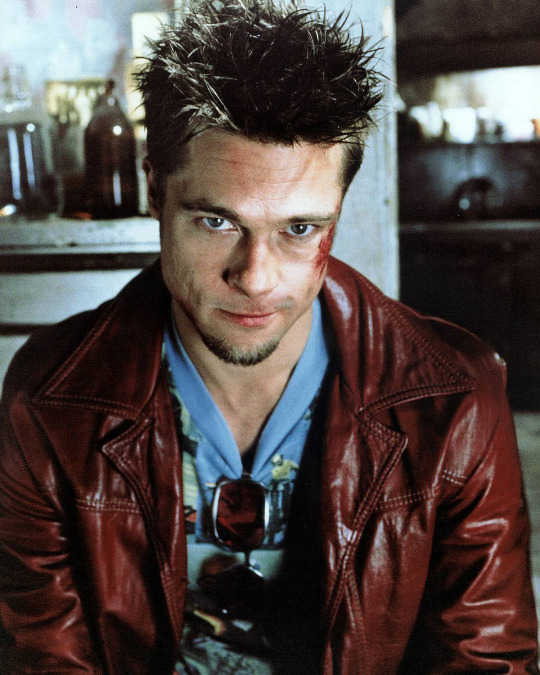
(WARNING! This analysis contains SPOILERS!)
There are so few villains as critically misunderstood as Tyler Durden.
Tyler Durden is one of cinema’s greatest characters and a fascinating figure, the walking personification of the narrator of Fight Club’s id, and a charismatic figure who manages to command a legion of slavishly loyal followers who heed him with a sort of cult-like reverence. But that’s the thing: Tyler is still an evil, manipulative force who brainwashes his followers and becomes increasingly more fascistic, fanatical, and anarchic as the narrator’s mental state starts to erode. He’s not someone anyone should want to emulate… and yet, people in real life parrot his ideology as if it’s a good thing.
All of this and more leads me to believe Tyler Durden may be one of the single most dangerous villains in cinematic history.
Actor: This is the definitive role of Brad Pitt’s career. I’m not sure what else can be said other than he is the perfect casting for a personification of what The narrator believes his ideal self would look like; I’m sure many a man’s ideal self looks somewhat like Brad Pitt does in this film. It helps Pitt exudes a natural charm and charisma that makes Tyler’s manipulations all the easier to buy into.
Motivation/Goals: Tyler Durden is a manifestation of the narrator’s mental illness, appearing as the man he wishes he could be. As such, Tyler rejects the banality and conformism of the narrator’s bland, consumerist life and desires for a free, anarchic life instead, gathering up men to join an underground fight club and then from there brainwashing them into a cult that will follow his orders to spread chaos, destruction, and anarchy across the world. He’s like Heath Ledger’s Joker long before that take on Mr. J was even a thought.
Personality: As with any sort of cult leader, Tyler has the sort of charm and charisma one would expect, with him easily able to sway men to his side. Look at the sort of charming conversations he has with, well, himself, where he talks with the narrator about the sort of historical figures he’d fight. He’s constantly working his magic and worming his way into the minds of others the way he wormed into the narrator’s mind.
Final Fate: The narrator manages to banish Tyler once and for all by shooting himself in the head. Tyler probably shouldn’t have threatened Marla.
Best Scene: Tyler steps out on the floor to give all of those gathered a little rundown about the rules of the club he’s established….
Best Quote: “Gentlemen, welcome to Fight Club. The first rule of Fight Club is: You do not talk about Fight Club. The second rule of Fight Club is: You do not talk about Fight Club. Third rule of Fight Club: Someone yells "Stop!", goes limp, taps out, the fight is over. Fourth rule: Only two guys to a fight. Fifth rule: One fight at a time, fellas. Sixth rule: No shirts, no shoes. Seventh rule: Fights will go on as long as they have to. And the eighth and final rule: If this is your first night at Fight Club, you have to fight.”
Final Thoughts & Score: So why do I think Tyler Durden is the most dangerous villain in cinematic history despite his ultimate evil scheme being relatively benign compared to someone like Thanos or Darth Vader? It all boils down to how Tyler Durden has affected reality. Fiction can have positive and negative effects on the world around it, and when stupid people get hold of something like Fight Club, damage is going to be done. The book is very much a left-wing lampooning of toxic masculinity, and while Tyler certainly isn’t wrong about the pitfalls of capitalism and consumer culture, he is literally a walking symptom of mental illness being hallucinated by his alter ego and becomes increasingly sociopathic and fascist as the film wears on.
And yet the alt-right seems to have latched on to Tyler, particularly his usage of the word “snowflake,” and used it to bash anyone they view as overly sensitive. I’m sure you’ve seen “Special snowflake” thrown around a lot; the irony is that, within the context of the film, Tyler is using the phrase “You are not a beautiful and unique snowflake” as one of his many tools to brainwash his followers. It’s not shocking that alt-right folk would misconstrue the words of brainwashing and fascism as something profound and intelligent, but that’s just the tip of the iceberg here.
Anti-establishment people view Tyler as some sort of heroic messiah, with Project Mayhem being a force of good as they stick it to capitalism and commit acts of terrorism, while some men just completely and entirely ignore the point of the movie and view Tyler as the ideal man. Then of course there are tons of edgy Tyler Durden memes, memes very evocative of similar edgy memes that the Joker has… it’s all just a huge mess. Tyler is not just an affliction on the narrator, Tyler is a mental illness afflicting many people in real life, tricking them into considering him some sort of deeply profound philosopher raging against the machine when he is in fact nothing more than a psychotic mental ubermensch who wishes to end capitalism and conformity with an army of brainwashed conformists who bend to his whims. Tyler is a cruel, calculating hypocrite who is so close to being onto something but resorts to the most abhorrent means to achieve his goals. He’s so utterly fascinating, but so many people still seem to think of him as some dark, heroic figure who was in the right, when the movie clearly shows he wasn’t for a variety of reasons.
It’s amazing what kind of fictional characters people put on a pedestal, all while missing the point that the character is specifically designed to show you the toxicity behind the traits that stupid people are holding up. Characters like Cartman, Rick Sanchez, and of course Tyler Durden are all held up as fictional characters to emulate… and yet each of them is so toxic in their own ways that to emulate them would be social suicide. I don’t blame Fight Club for the stupid people who put Tyler on a pedestal; it is not the art’s fault when its subtleties are lost on its audience. But I do still give Tyler an 11/10 for being a villain who is dangerous both in and out of story. Not many villains can say they have spread their influence to real life… but not many villains are Tyler Durden, now are they?
23 notes
·
View notes